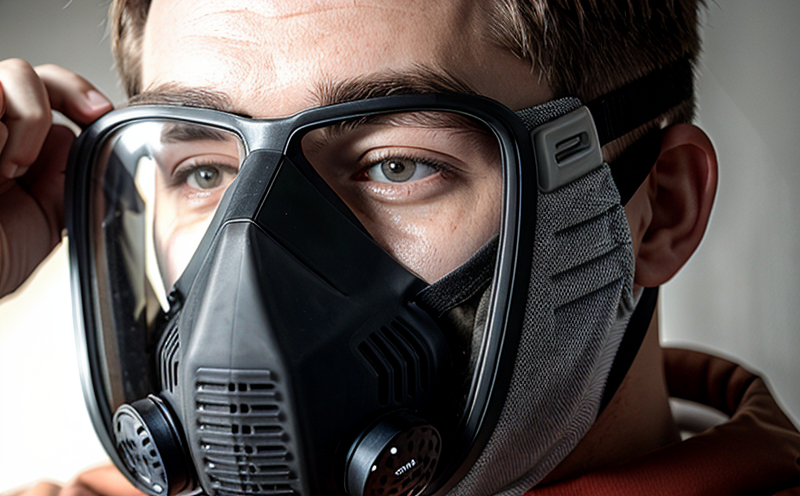Respirator mask inspection
The inspection of respirator masks is a critical process that ensures the safety and health of workers in various sectors. Respirator masks are designed to filter out harmful particles, gases, and other contaminants from the air, providing protection against respiratory hazards. In industries such as healthcare, manufacturing, construction, and even research laboratories, the reliability and effectiveness of respirators cannot be overstated.
Respirator mask inspection involves a series of detailed checks and tests to ensure that the masks meet specific standards and regulations set by organizations like the National Institute for Occupational Safety and Health (NIOSH) in the U.S., or other relevant bodies worldwide. These inspections are crucial not only for compliance but also for protecting workers from potential health risks.
During an inspection, several key aspects of respirator masks are evaluated:
- Filter efficiency: This test assesses how well the mask filters out particles such as dust, bacteria, and viruses. Masks must meet specific filtration percentages to be certified by NIOSH.
- Airtight fit: A proper seal is essential for the mask to effectively protect against inhalation of harmful substances. Fit testing ensures that the mask adheres correctly to the face.
- Respiratory resistance: The ease with which a wearer can breathe through the mask is crucial. Masks should not cause excessive discomfort or difficulty breathing.
- Routine wear and tear checks: Over time, masks may lose their effectiveness due to regular use. Routine inspections help identify signs of wear that could compromise safety.
Inspecting respirator masks is a multi-step process that includes visual inspection for visible damage or defects, fit testing to ensure proper seal around the face, and filter efficiency tests using specialized equipment like air filtration chambers.
The results of these inspections are critical for quality managers, compliance officers, R&D engineers, and procurement teams. By ensuring that respirator masks meet stringent standards, they can help prevent workplace accidents and illnesses, thereby reducing healthcare costs and improving productivity within the organization.
Why It Matters
The importance of respirator mask inspections cannot be overstated in today's safety-conscious work environments. Respirators are essential for protecting workers from airborne contaminants that can lead to respiratory diseases, such as chronic obstructive pulmonary disease (COPD) and lung cancer. In industries where exposure to toxic substances is a daily hazard, the use of properly inspected respirator masks can significantly reduce the risk of these health issues.
For instance, in healthcare settings, where workers are exposed to various pathogens including SARS-CoV-2, ensuring that respirators meet stringent standards and pass rigorous inspections is paramount. Similarly, in manufacturing environments where workers may be exposed to dust or fumes, regular inspection and maintenance of respirator masks can prevent inhalation-related illnesses.
From a legal standpoint, compliance with regulatory bodies such as NIOSH ensures that companies are meeting their obligations under occupational health and safety laws. Failure to comply could result in fines, penalties, and even lawsuits. Moreover, demonstrating due diligence through regular inspections can protect employers from liability in case of accidents or incidents involving improperly used respirators.
On a broader scale, the effectiveness of respirator masks inspected according to stringent standards contributes to public health by reducing the spread of infectious diseases. In times of pandemics like COVID-19, where respiratory protection is more critical than ever before, the inspection process plays an integral role in safeguarding communities.
Benefits
- Increased worker safety: Properly inspected respirator masks ensure that workers are protected against harmful airborne contaminants, reducing the risk of respiratory illnesses and other health hazards.
- Legal compliance: By adhering to regulatory standards such as those set by NIOSH or other international bodies, organizations demonstrate their commitment to worker safety and comply with legal requirements.
- Potential cost savings: Preventive maintenance through regular inspections can save significant costs associated with workplace accidents, healthcare expenses, and potential lawsuits. It also helps in reducing the frequency of mask replacements due to wear and tear.
- Improved productivity: Workers who are confident that their respirator masks are safe and effective are more likely to perform their jobs efficiently without fear of health risks.
- Enhanced reputation: A commitment to regular inspections for respirator masks can improve a company's public image, attracting customers and partners who value safety and reliability.
- Promotion of best practices: Regular inspections encourage the use of best practices in respiratory protection, ensuring that workers are always using the most effective and appropriate respirators available.
Why Choose This Test
Selecting a reputable laboratory for respirator mask inspection is crucial to ensure accurate results and compliance with international standards. Here’s why you should choose this test:
Experience and expertise: Our team of highly qualified professionals has extensive experience in respiratory protection testing, ensuring that we can provide precise and reliable results.
State-of-the-art equipment: We utilize advanced instrumentation to perform comprehensive inspections, including air filtration chambers for filter efficiency tests and specialized fit testers for airtightness checks.
Prompt turnaround times: We understand the urgency of respirator mask inspections in ensuring worker safety. Therefore, we strive to deliver accurate reports within tight deadlines.
Comprehensive reporting: Our detailed inspection reports provide not only pass/fail results but also insights into any areas that need improvement, helping you make informed decisions about your respiratory protection program.
Dedication to quality: We are committed to maintaining the highest standards of accuracy and reliability in all our services. This commitment ensures that you receive accurate and actionable data from each inspection.





